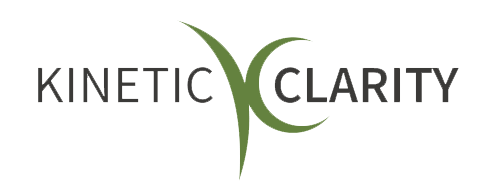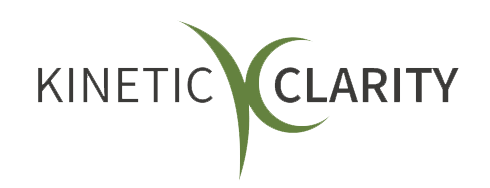10 Strategies to Make Your Workplace More Inclusive
Business doesn’t look the same as it did a few decades ago.

Business doesn’t look the same as it did a few decades ago. As the years go on, companies are evolving, made up from a more diverse workforce. So when we are faced with this new global marketplace, building an inclusive workplace isn't just a nice-to-have; it's a must-have.
When you foster an environment where everyone feels valued and respected, it can lead to greater innovation, higher employee satisfaction, and an improved bottom line. So how can leaders ensure they're cultivating a truly inclusive environment? Here are several actionable strategies to consider.
1. Lead with Empathy
To understand and appreciate the varied backgrounds and perspectives of your team, it's vital to approach issues and interactions with empathy. Listen actively to concerns, ask questions to deepen your understanding, and show genuine interest in each person’s unique story and perspective.
By promoting an empathetic leadership style, organizations can create an atmosphere where employees feel genuinely valued and understood. Moreover, when employees believe that their leaders genuinely care about their well-being, they are more likely to be engaged, loyal, and committed to the company's mission and values. This not only benefits individual morale but can also lead to a more cohesive and productive team environment.
2. Prioritize Regular Training
Regular training serves as the backbone of fostering an inclusive work environment. Not only does it equip employees with the knowledge and skills to navigate a diverse landscape, but it also communicates the organization's commitment to valuing every individual. Inclusion training helps break down walls of misunderstanding and paves the way for open dialogue.
However, it's important to note that a single training session isn't a cure-all. Inclusivity is an evolving concept, reflecting the dynamic nature of our society. Hence, continuous learning and adaptation are crucial. By providing ongoing training sessions, employers offer their team a platform to discuss new insights, confront emerging challenges, and celebrate the milestones they achieve together in fostering an inclusive environment.
3. Create Diverse Teams
Diversity is more than a buzzword; it's a powerful tool that enriches the fabric of an organization. When teams are comprised of members from varied backgrounds, they become melting pots of unique experiences, ideas, and solutions. This eclectic mix can often lead to more innovative problem-solving and decision-making.
Leaders should be proactive in creating such diverse groups, ensuring that they're not just diverse in appearance but in thought as well. Embracing diversity within teams not only amplifies productivity but also fosters a deeper sense of unity and mutual respect among employees.
4. Encourage Open Communication
Open communication is the cornerstone of a healthy and inclusive workplace. It paves the way for employees to express their ideas, concerns, and feelings without fear of judgment or backlash. Such transparency fosters trust and reinforces the idea that every voice is valued.
But promoting open dialogue goes beyond just setting up communication channels. It's about creating a culture where employees feel empowered to speak up, and leaders are receptive to listening. When teams operate in an atmosphere of mutual respect, where feedback is not just welcomed but actively sought, it leads to better collaboration, innovation, and overall job satisfaction.
5. Celebrate Cultural Events
Celebrating cultural events within the workplace is a vibrant way to embrace the rich tapestry of backgrounds and histories that employees bring with them. By acknowledging these events, companies send a clear message: every tradition and history is important and worth recognizing. Such celebrations can be transformative, turning mere colleagues into a community that learns from and appreciates one another.
These events provide employees with a platform to share stories from their culture, allowing others to gain insights and understanding that might not be available through traditional channels. They serve as reminders of the rich diversity within the organization and the shared commitment to honoring every individual's unique background and perspective.
6. Implement Flexible Work Policies
In a world where one-size-fits-all approaches are becoming increasingly obsolete, flexible work policies stand out as beacons of adaptability and inclusivity. Recognizing that every individual has distinct needs and circumstances is paramount in creating a truly inclusive environment. Whether it's accommodating religious observances, adjusting for different time zones for remote workers, or facilitating those with family commitments, flexibility showcases an organization's dedication to its employees' well-being.
This isn't just about convenience; it's about acknowledging and respecting the diverse lives that employees lead outside the office. Employees, when trusted with flexibility, often reward organizations with loyalty, dedication, and a heightened sense of responsibility. In the long run, such policies can turn workplaces into nurturing communities where everyone feels valued and understood.
7. Promote Based on Merit
Promotions based on merit signify an organization's commitment to fairness, equality, and recognition of hard work. This approach not only fosters trust and respect among employees but also drives them to give their best, knowing their efforts won't go unnoticed.
Additionally, merit-based promotions act as a beacon, attracting top talent who value transparency and fairness. When companies consistently demonstrate that they reward genuine effort and talent over favoritism or other non-meritorious factors, they cultivate an atmosphere of motivation and aspiration. It's a testament to the principle that every employee, irrespective of their background, has an equal opportunity to climb the ladder based on their merit.
8. Create Inclusion Task Forces
The creation of inclusion task forces is a proactive step towards ensuring that diversity and inclusion aren't just buzzwords, but embedded principles within the company’s DNA. These dedicated teams or committees play an instrumental role in championing inclusivity, ensuring that the organization's values align with its practices.
Their continuous effort in analyzing feedback, conducting internal surveys, and researching best practices can significantly expedite the journey toward genuine inclusivity. Plus, by involving members from varied backgrounds and departments, task forces themselves embody the principle of diversity, demonstrating that every voice, regardless of rank or role, plays a crucial part in shaping the organization's inclusive future.
9. Celebrate Small Wins
In the journey towards a fully inclusive workplace, every milestone, no matter how seemingly insignificant, is a testament to progress and effort. Recognizing and celebrating these small wins serves multiple purposes. Firstly, it offers a moment of reflection, allowing teams to look back and appreciate the strides made. Secondly, it acts as a motivator, reminding employees of the tangible results their efforts yield and spurring them on towards bigger goals.
Celebrating these moments also fosters a sense of unity and collective achievement, underscoring the idea that every step forward is a shared success. Challenges often dominate the limelight, so giving attention to positive outcomes, however minor, can cultivate an environment of optimism, resilience, and persistent pursuit of excellence.
10. Always Re-evaluate
Continuous re-evaluation is not just a strategy but a mindset, emphasizing the evolving nature of inclusivity in the workplace. As societies change, technologies advance, and global perspectives shift, the benchmarks for what constitutes an inclusive environment can transform as well. Therefore, it's paramount for organizations to regularly assess their practices, ensuring they remain relevant and effective.
This process involves soliciting feedback, understanding emerging challenges, and staying updated with global best practices. More than just a routine check, re-evaluation is a commitment to growth and adaptability. It emphasizes the idea that inclusivity is a journey, not a destination, and that there's always room for improvement.
Wrapping Up
Incorporating these strategies can make a significant impact on the inclusivity of your workplace. Remember, an inclusive environment is not just about checking a box; it's about creating a space where everyone can thrive and contribute to their fullest potential. An inclusive culture speaks louder than hanging a banner that proclaims to welcome all.
Contact us to talk about your executive coaching needs.
We will get back to you as soon as possible.
Please try again later.
Kinetic Clarity | All Rights Reserved |
Created by Olive + Ash.
Managed by Olive Street Design.












